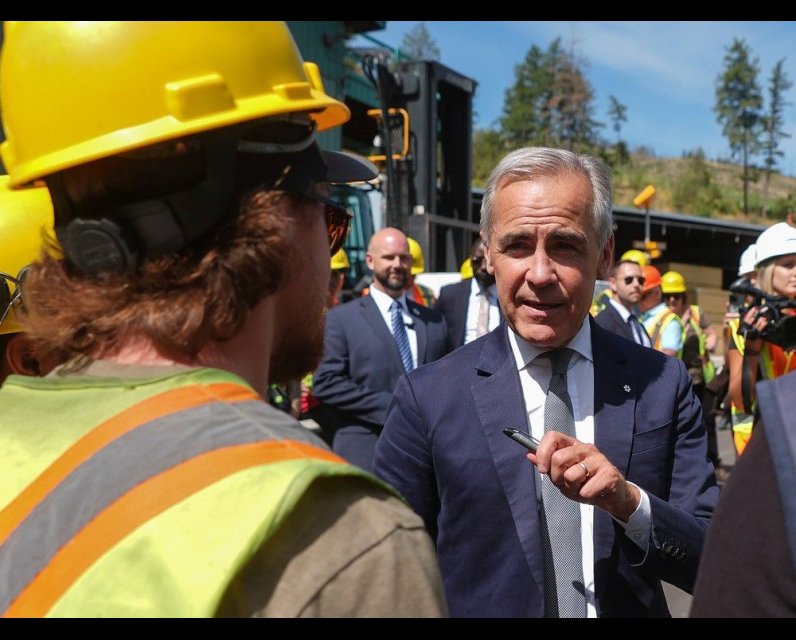Carney suggests he's considering rescinding Online News Act

OTTAWA — Prime Minister Mark Carney suggested Tuesday he is considering substituting or rescinding the Online News Act to ensure local news is disseminated wider and faster two years after Meta banned access to news on its platforms.
Carney made the unexpected suggestion while announcing over $1 billion in loan guaranteed and long-term supports for the softwood lumber industry at a mill in West Kelowna, B.C.
At the start of the news conference, Carney highlighted the brutal impact of wildfires this summer, including one that recently forced the evacuation of roughly 400 properties near West Kelowna.
Asked if his government is considering an alternative to the Online News Act — previously known as C-18 — or simply rescinding it so that Web giant Meta would lift its ban on news articles being shared on its platforms, Carney suggested that was “part of our thinking around” improving the reach of local media.
“This government is a big believer in the value of … local news and the importance of ensuring that that is disseminated as widely and as quickly as possible. So, we will look for all avenues to do that,” he said.
The prime minister’s office did not immediately respond to questions about which avenues specifically the government is considering to improve the dissemination of local news.
Meta controversially banned news articles from its Canadian users two years ago in response to the federal government’s Online News Act, which compels social media giants to negotiate revenue-sharing deals with news publishers for the use of their content.
The bill specifically impacted Meta and Google, though both have taken diametrically opposing routes to get exempt from the Act. The former banned news content outright on its platforms when the bill became law, while the latter signed a $100 million annual deal with Canadian publishers last year.
Meta has argued against the “false premise” that it benefits from free online news articles and says that media companies are the ones that benefit from sharing their content to Facebook and Instagram audiences.
Shortly after Meta barred Canadian news articles on Facebook and Instagram, then Prime Minister Justin Trudeau accused the web giant of “putting corporate profits ahead of people’s safety”.
“Instead of making sure that local journalists are fairly paid for keeping Canadians informed on things like wildfires, Facebook is blocking news from its sites,” he said in August 2023 .
“Right now in an emergency situation where up-to-date local information is more important than ever, Facebook’s putting corporate profits ahead of people’s safety, ahead of supporting quality local journalism,” he added.
During his press conference, Carney also reiterated his government’s campaign commitment to boost funding for CBC/Radio-Canada and change its governance so that it could provide “unbiased, immediate, local information” during crises such the ongoing B.C. wildfires.
During the campaign, Carney committed to boosting the public broadcaster’s funding by $150 million yearly.
Meta did not immediately respond to a request for comment.
National Post
cnardi@postmedia.com
Our website is the place for the latest breaking news, exclusive scoops, longreads and provocative commentary. Please bookmark nationalpost.com and sign up for our politics newsletter, First Reading, here.

Comments
Be the first to comment